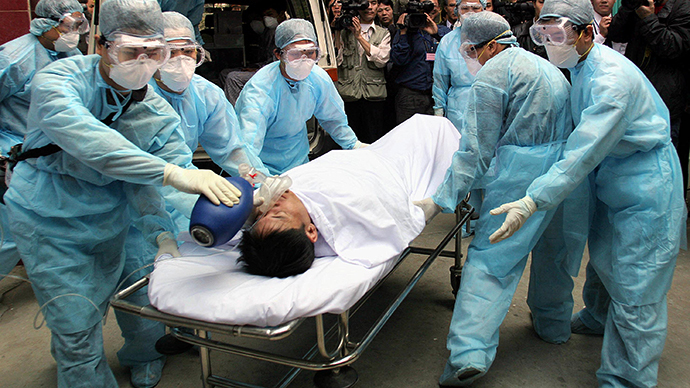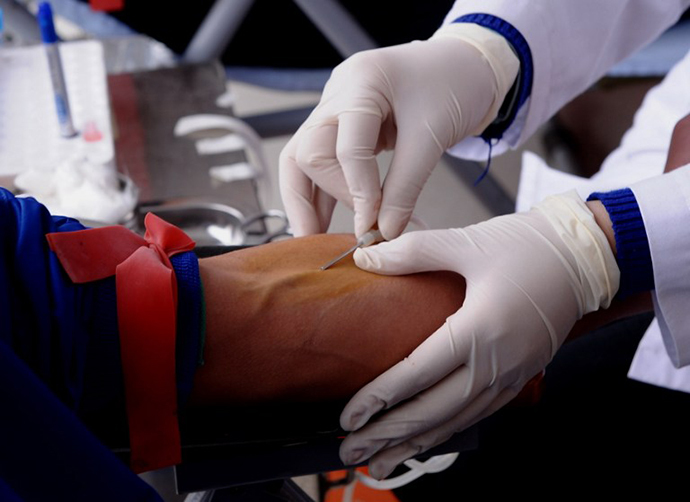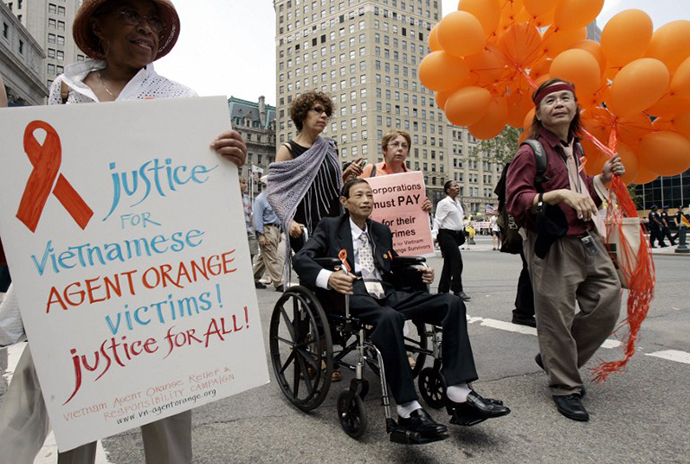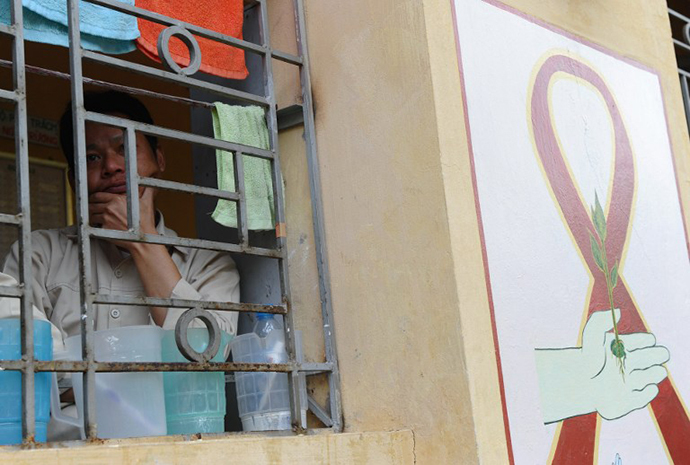Healthcare affordability: The US-led TPP comes with strings attached for Vietnam

While Vietnam waits to become marked on the global map as an important trade destination when it joins the US led Trans-Pacific Partnership (TPP), there is a growing outcry on the implications of the free trade agreement.
Apart from many who feel protected domestic industries may get adversely hit as the economy opens up to stiffer international competition, there is a stronger reservations over the intellectual property clauses of the deal which analysts say may impact the accessibility of medical care in the lower income nations of TPP like Vietnam as it could make generic drugs more expensive.
For diseases like HIV/AIDS generic medicines have made drugs and treatment available to a vast majority of people in developing countries.
As defined by Médecins Sans Frontières (MSF), countries use generic drugs under a complex structure of domestic laws supervising patents and intellectual property rights which often can be impacted by trade pacts and international agreements unless governments strike the right balance between public health interests and intellectual property (IP) demands.
The IP standards of the TPP – primarily including the US, Australia, Brunei, Chile, Malaysia, Mexico, New Zealand, Canada, Peru, Singapore, Japan, Vietnam among others together accounting for 40 percent of the world's GDP and 26 percent of the world's trade – tend to tilt the balance towards commercial interests over public health in developing countries, experts feel.
In 1995, the WTO’s TRIPS agreement imposed minimum IP standards worldwide which also included granting patent monopolies on pharmaceutical products and flexibility in balancing commercial interests and public health within its purview.
However the proposed TPP agreement, according to WHO’s UNITAID, “includes extensive obligations related to intellectual property and investor protection which exceed the minimum standards of the multilateral WTO Agreement on Trade-Related Aspects of Intellectual Property Rights (TRIPS).”
UNITAID says there are serious concerns that will have adverse implications for access to medicines and the protection of public health in general when adopting TPP provisions, like low standards of patentability resulting in a greater number of patents being granted, including on medicines and medical technologies.
IP aggressiveness
Referred to as “evergreening”, this clause allows patent holders to enjoy longer periods of exclusivity on a medicine than the 20-year minimum period prescribed by TRIPS. Thereby widening scope of what can be patented leading to proliferation of secondary patents being granted, preventing fair competition for long periods.
Dr Matthew Rimmer, Australian Research Council Future Fellow working on Intellectual Property and Climate Change & associate professor at the ANU College of Law says, “With its high intellectual property standards and special privileges for investors, the TPP poses serious and profound challenges for public health, drug pricing, and access to essential medicines. As highlighted by UNITAID, there has been particular concern about access to essential medicines for infectious diseases like HIV/AIDS. Vietnam has struggled with the complexity of the trade negotiations. Of all the negotiating countries, Vietnam seems to be the most vulnerable to public health burdens, and the most ill-equipped to adapt to such intellectual property and trade standards.”
Even methods of treating patients such as surgical, diagnostic and therapeutic medical procedures have been proposed to be patented which will limit availability of medical best-practices, knowledge and care.

Data exclusivity for biologics is also a provision which will result in longer periods of unaffordability of generic versions of biotech medicines needed to treat diseases such as cancer and hepatitis. Shihoko Goto, Senior Associate for Northeast Asia, Asia Program at the Woodrow Wilson Center says, “Expanding and extending the patent scope of drugs has been seen as particularly harmful by critics. Extending patent protection would certainly benefit drug makers and may increase incentives for research, but could hurt healthcare affordability and access.”
For instance, drugs known as biologics (created through biological processes only), are proposed to have 12 years of data exclusivity.
The provision for Investor-State Dispute Settlements (ISDS) allows corporations to sue governments in private supra-national arbitration over pro-public health regulations or decisions seen to be interfering with anticipated profits.
Vulnerabilities
For Vietnam with an estimated over 280,000 HIV-positive people,
and cancer among its top five health problems, it will have
severe implications on managing medicine prices if
TPP comes through. “This issue of healthcare access and
affordability is one of the biggest issues challenging Vietnam’s
support for TPP. Being a member country of the biggest,
high-standard multilateral trade pact puts Vietnam’s economy on
the global map, and will give it a distinct advantage among its
neighbors as it competes for investments in key sectors and looks
to grow its critical textile sector. Yet, public opposition
stemming from fears of a greater healthcare divide is growing,”
Shihoko Goto says.
Vietnam faces a huge epidemic of HIV and hepatitis C due to
injecting drug use. A number of new drugs for hepatitis C are
patented and are exceedingly expensive – up to $80,000 per
treatment.
As early as 2005, the UN estimated 8.2 percent of deaths in Vietnam are cancer related, and there are 1.5 million new cases every year. However, only 3 percent of the pharmaceutical market account for cancer medicines according to Oxfam. What happens to the rest? How do they afford the treatment?
While about 170,000 people still require basic treatment in Vietnam, close to 2.7% of Vietnamese citizens rely on the second- and third-line medicines as the disease progresses, especially for HIV/AIDS, most of which are under patent and five to ten times more expensive than first-line medicines.

The US has proposed time-limited exemptions for a few of the low income countries including Vietnam where some provisions wouldn’t be implemented until a certain date or conditions are met. Experts feel it will only delay the implementation of such provisions and not curb the challenge of healthcare accessibility which the current TPP pact poses.
Goto says: “While the United States has proposed measures to
exempt some countries, namely Malaysia, Mexico, and Peru as well
as Vietnam from some of the more stringent patent regulations for
a limited time, opponents fear that such measures will still not
be enough to keep medicines affordable for all who need it,
regardless of where they live.”
She adds that the US proposal of high- and low-income countries
is based on classification by the World Bank, which itself has
come under attack from numerous non-profit organizations.
Specifically, there is concern that even in countries like the
United States that is wealthy at a national level; it still has
large percentages of the population that struggle to pay for
necessary drugs. The challenge of affordable medicine and need
for generic drugs is universal, and not just limited simply to
poorer nations. As such, moves that would raise prices further
are viewed as grossly unequal.
Rohit Malpani, Director of Policy & Analysis, Médecins Sans Frontières (MSF) - Access Campaign, points out that the TPP is a product of efforts by multinational drug companies which have not only convinced the US to reverse the ‘May 10th Agreement’ under the TPP, but has also persuaded the US Trade Representative to introduce a host of other TRIPS plus rules that will have negative impacts on generic competition and access to medicines.
Essentially, the May 10th agreement was a decision by the United States to unilaterally revise provisions in free trade agreements related to issues around the environment, labor and intellectual property and access to medicines.
“With respect to intellectual property and access to medicines, the US decided to remove two TRIPS plus rules that extend monopoly protection for medicines, keeping low-cost generics off the market. In particular the US decided to remove obligations around patent term extensions and patent linkage. In addition, the US decided to reduce the severity of rules related to data exclusivity. The multinational pharmaceutical industry withdrew its support for the three free trade agreements, and has spent considerable effort to get the US to reverse this policy.”

However, David Brown, an expert in Vietnam feels the likely impact of the TPP on pharmaceutical prices or availability does not seem to be a topic of public concern in Vietnam.
“I found zero stories on the outlook for pharmaceutical prices (in local media). A very large part of the informed public has bought into the notion that the TPP, if it ever goes into effect, will be a huge benefit for Vietnam's trade, if not an unqualified good thing.”
What Vietnam currently seems to be focusing on are the incentives that come with being a part of the TPP. Prospects of economic growth seem to be taking precedence over ‘other’ matters.
According to experts if signed the pact could increase Vietnam’s GDP by $37.5 billion with an export lift of $307 billion by 2025 through TTP. Already 50 percent of Vietnam’s foreign investment flows from the TPP countries. In 2013 Vietnamese exports to the US alone jumped by 21.3 percent.
As Goto says, “For Hanoi, the question is whether the gains it would see from being a more fully integrated and equal partner in a highly integrated global economy would offset some of the compromises it would have to make. By some estimates, the Vietnamese economy could grow by as much as 10 percent over the next five years as a direct result of joining the TPP. That would clearly be an incentive for the ruling Communist Party which is focused on tackling poverty and enhancing economic performance.”
So while the deal may bring about lucrative results to Vietnam, quite evidently these prospects come at the high cost of health care accessibility. It remains to be seen how Vietnam manages to balance public health interests and economic gains.
The statements, views and opinions expressed in this column are solely those of the author and do not necessarily represent those of RT.
The statements, views and opinions expressed in this column are solely those of the author and do not necessarily represent those of RT.













